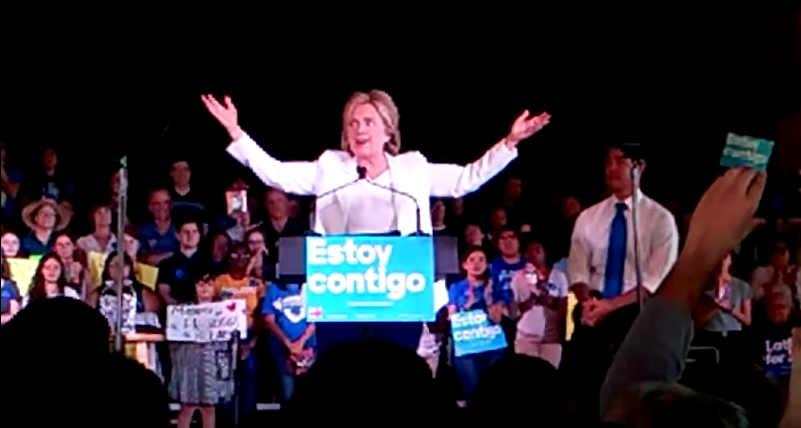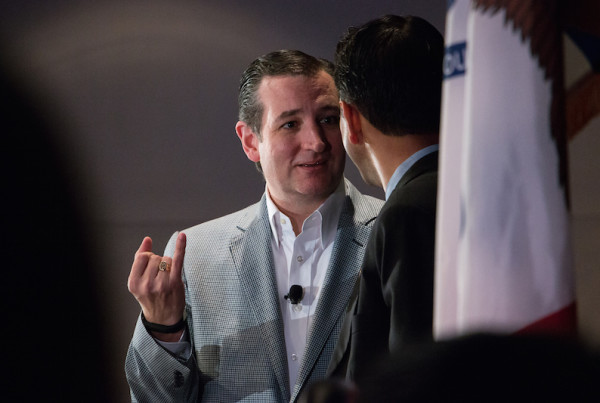With the presidential election just over the horizon, many politicians are looking for ways to connect with their constituents.
For some it’s talking about the economy or healthcare, for others it’s the war on terrorism. But when interacting with a demographic that that may not resemble their base, some politicians turn toward pandering.
We’ve all seen it. You may recall President Obama adding a bit more twang in his speeches when he visits the South. But what about pandering to largest minority group in the U.S. – Spanish-speakers in America?
Shereen Marisol Meraji has written about the phenomenon called “hispandering” for NPR’s Code Switch and joins the Standard to discuss the term and the strategy behind it.
“It’s a mashup of ‘Hispanic’ and ‘pandering,'” Meraji says. “An easy definition, I think, is faking interest in issues important to Latinos like immigration or feigning interest in Latino culture. Think mariachis and tacos.”
Meraji says the situation often depends on who’s throwing out Hispandering accusation.
“A politician could be accused of Hispandering from the right if they’re softening their stance on border enforcement before a big election,” she says. “[Politicians] could be accused of Hispandering from the left if they promised immigration reform or a pathway to citizenship in a run-up to an election but then bailed out once they won.”
Politicians can even be accused of Hispandering for making “awkward overtures” to the Latino community, like Hillary Clinton after a campaign event in San Antonio.
“Hillary Clinton was called out for calling herself La Hillary and Tu Hillary,” Meraji says. “People are like, Really? You don’t need to speak bad Spanish to be down. But it’s totally bipartisan.”
Listen to the full interview in the audio player above.















